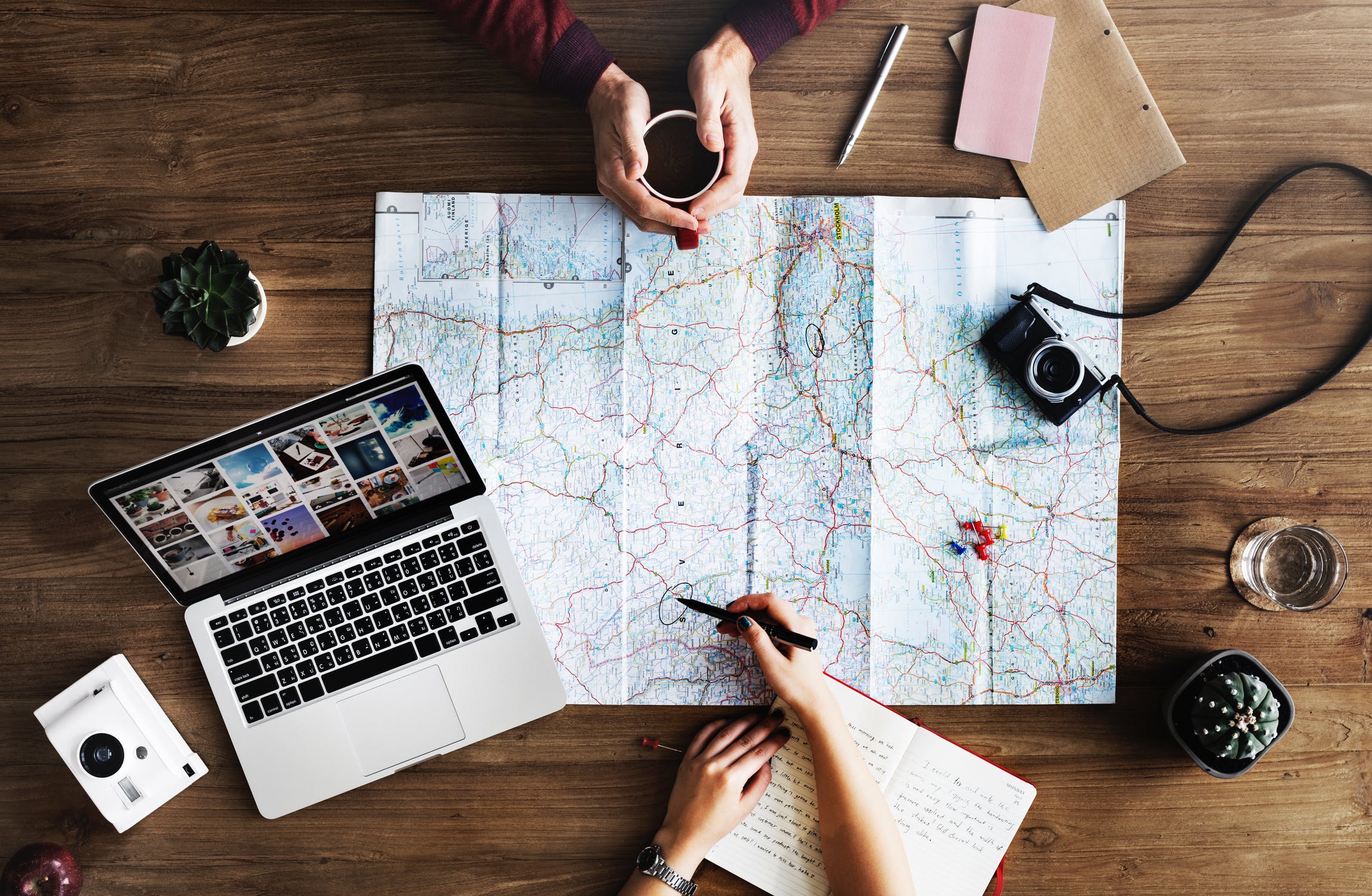Studying abroad is an exciting experience for students from the United States. During your studies and travels, you’ll experience a new culture and may possibly benefit from unexpected opportunities.
Still, international experiences can be overwhelming for some. One of the most important things that you can do to prepare for your big trip is to start a travel fund. This is a luxury expense that you contribute to after stashing away money for emergencies and retirement. Use a separate FIDC insured savings account to distance yourself from your travel bankroll and keep it safe.
Start saving early, and make deposits often. Furthermore, don’t wait to start saving until you’ve made all your plans. Once you’ve done this, you can adjust your savings so that your travel nest egg is on target by the time you leave for your trip.
The following sections reveal 7 more insightful and fun tips to prepare you for an overseas learning adventure.
Tip 1: Research and Identify the Best Places for You to Travel
Traveling and studying abroad is a commitment. It’s important that you have a clear understanding of where, when, why and how you want to visit specific destinations during your overseas excursion.
Know what to expect while living in your temporary dwelling so that you’ll be comfortable and able to have fun. Upfront research is important in assuring that you’re comfortable during your stay and maintaining living standards that agree with your lifestyle. Also, make sure that you purchase tickets for activities and attractions as soon as possible, enabling you to skip lines, find deals and save time as well as money.
Tip 2: Explore and Seek out New Adventures
Different countries have unique qualities and opportunities. Research what your destination has to offer and decide which activities you’d like to experience because you can’t do it all.
You might want to visit historic attractions, stay in areas with affable climates or participate in activities that will build your understanding of the native language.
Fun activities, such as skydiving, nature walks and other available attractions, are other happenings that you might want to consider.
Going abroad creates new opportunities to explore in ways you can’t in the United States. Studying abroad in New Zealand and Australia, for instance, are popular tourist and studying abroad destinations for American students because of the rich cultural experiences that abound. In addition, the residents of those countries speak English, making it easier to adapt to the environment.
Tip 3: Be Willing to Try New Foods
Observing how other cultures eat and cook as well as trying out new cuisine is part of the joy of traveling. Your time abroad might help you acquire new tastes and improve your diet. Make the most of your international adventure by experimenting with new and interesting foods.
In the United States, people don’t always have access to healthy food. According to research, 55-percent of American consumers are less likely to maintain healthy eating habits. Your overseas experience can expose you to new foods, improve your diet and provide you with ideas about how to improve your eating habits once you return home.
Tip 4: Pack Light
Although you want to maximize your luggage real estate, make sure that you pack at least one extra set of clothes in your carry-on bag. In the unfortunate event that the carrier loses your luggage, you don’t want to be forced to spend the first few days of your trip stuck wearing the same high-fashion outfit every day.
Carriers have varying rules regarding luggage handling and carry-on bags. Make sure that you know them well so that you can avoid unnecessary fees, and if you’re using multiple carriers, make sure that you know the rules for each airline.
Tip 5: Create a Budget Plan
Start your excursion budgeting by gathering ideas about where you want to go and establishing how much you want to spend at each destination. Don’t be too frugal though. Traveling is a once-in-a-lifetime opportunity.
Next, create a budget with a weekly allowance that covers food, rent and other expenses. Also, make sure that your credit is in order before you depart so that you can enjoy your travels and have access to emergency funds as well as the ability to occasionally splurge when desired.
Tip 6: Stay Fit and Healthy
Before you depart, see your doctor for a wellness visit and check the coverage of your healthcare insurance. Make sure that you have the proper vaccinations for the area that you’re traveling to, as well as any necessary prescriptions, and that your health insurance covers you for overseas emergencies. If not, you’ll want to buy extra coverage such as a supplemental insurance policy.
It’s important to remember that you can pack on the pounds during your voyage if you’re not careful. Balance your epicurean curiosity with common sense. Eat healthy foods and find time to work out during your stay. Don’t break the habit of taking care of yourself and staying in shape because you’re temporarily living in another country.
Tip 7: Say YES to Opportunities
Most importantly, enjoy your time abroad, freedom and independence. Take risks, have fun traveling and enjoy your time there. Your international experience is an adventure where you can explore, discover and learn about a new culture, fun activities and native wildlife.
To make the most of your trip, you might want to connect with local guides or like-minded travelers. Going solo is fine as well, but your trip will be much more enriched if you socialize with new and interesting people.
While living overseas, make new friends and don’t feel intimidated by trying to communicate with non-English speakers. This will improve your experience — and you might even learn a new language!
During your stay, don’t be afraid to ask questions. While some cultures may view this as a negative experience, don’t let that undermine your curiosity. You might mildly ruffle someone’s feathers, but your inquiries will ultimately show native residents that you’re interested in their culture and want to understand them.
Besides, inquisitiveness is necessary if you want to get the most from your academic experience. You never know, in the end, you might make a lifelong international acquaintance.
Undoubtedly, international travel is a special privilege. If you feel the urge to experience the unknown and discover something new, plan wisely and prepare for the great adventure before you.










